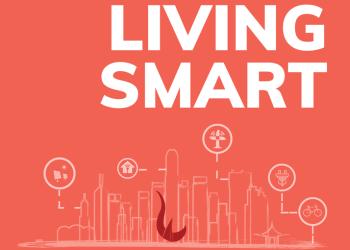新闻及香港科大故事
2020
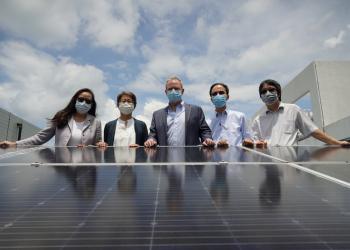
新闻
科大安装全港最大型太阳能发电系统
香港科技大学(科大)一直致力成为可持续发展先驱,今日宣布将于校内逾50个地点建设一个达8,000块太阳能板的可再生能源项目,完工后将为本港最大规模的同类型发电系统。
科大会于校园内超过50个地点安装8,000块太阳能板
这个系统将于未来25年间,每年产生300万度(千瓦时)电,相当于香港900户三人家庭一年的用电量1 ,并减少约150万公斤碳排放。透过参与中电的可再生能源上网电价计划 (FiT)2,项目从今起至计划于2033年终结为止,将带来高达1亿6000万港元的上网电价收入; 扣除安装太阳能电板的成本,科大每年平均收入为400万,收益将投放至大学其他节能减排的措施上。此外,科大亦会划出部分太阳能板作实验用途,让科大成员测试与太阳能板相关的意念及研究项目。发电系统第一阶段工程,已于本年七月展开并将持续至2021年。

新闻
科大推出香港首个电子证书认证平台
香港科技大学(科大)近日推出科大「区块链证书」平台,为毕业证书、学业成绩单等认证提供了一个方便、安全可信的系统,有助打击伪造证书,并籍此推广无纸化与可持续发展校园。现时,毕业生每需要一份纸本毕业证书,均需向大学提出要求并付款,既不环保又费时,为毕业生与雇主双方带来麻烦。作为香港首间大学推出以区块链技术为基础的学位认证系统,科大希望带领潮流,逐步取代传统的打印本证书,并期望此认证平台能有助遏止伪造学历等非法活动。 科大毕业生将于本月底开始收到校方经电邮发送、获加密签署及具防篡改功能的电子毕业证书。大学亦会于本年11月向毕业生提供电子学业成绩单﹔有需要提前取得电子成绩单的学生也可自9月份起向校方提出个别申请。
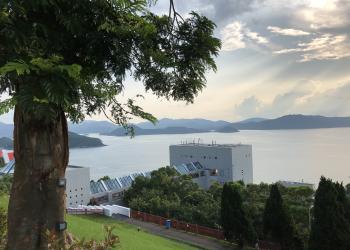
新闻
通向可持续树木管理之路
「每棵树都是活着的生命!」土木及环境工程学系教授暨副系主任王幼行教授一边欣赏科大海旁附近山坡的一棵大树,一边有感而发。2018年9月, 台风「山竹」袭港,将这棵树几乎吹断一半。王教授最初心想大树受此重创,也许「难逃一刧」,但它却如奇迹般存活下来;树木应对恶劣天气的韧力和复原能力,的确叫他惊喜不已! 事实上,随着气候转变,极端天气越趋频密。为了监测这棵树的稳定性,王教授在树干底部装设了智能传感器,以便监察其倾斜角度。
这个安装在树上的传感器,是由以王教授为首的研究团队研发,而且源自七年前一项由学生主导、运用遥感技术探测斜坡稳定性的专题研习项目。
土木工程研究生陈斌祥是王教授团队的成员。他说:「身为工程师,我们要寻找一个可以准确评定树木健康状况的方法。透过研究一棵树的物理数据,可以准确评估树干倾斜是否不可逆转,并于必要时立即进行补救。」
2017年,香港特区政府主动接触研究团队,探讨将遥感技术用于监测树木的可行性。当时,市场上的传统传感器无法符合树木传感器的两大基本要求:第一、数据传输不会受极端天气干扰;第二、省电耐用。
2018年2月,王教授的团队成功为研发这套用于监测树木稳定性的智能遥感技术取得一年半外界经费;与此同时,他们亦孜孜不倦,花了一年时间提升技术,最终取得突破:改良后的传感器使用长距离广域网络 (LoRaWAN),不但可实时传输数据,而且功耗低,非常省电。
有关数据会发送至处理中心进行大数据分析,以便让树木得到及时处理。年半间,团队已先后研发三代传感器,使数据传输距离增长四倍。
有效管理树木向来是政府其中一项要务。城中珍贵的古树与大自然密不可分,台风对其威胁尤大;树木一旦倒下,更会危害市民安全。
2018年8月底,天文台预测本地历来威力最强的台风「山竹」将直扑香港。研究团队因此加速优化其程序设计,在短短一星期内,成功将 32个第三代传感器安装在元朗大棠和市区的部分树木。
「山竹」一役虽导致 46,000 棵树木倒塌 ,但亦为研究团队提供了珍贵的第一手科学数据,可用于分析为何有些树木会因此倒塌,而有些却可以屹立不倒。
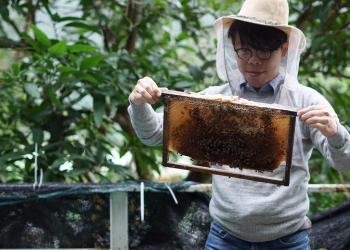
新闻
应对全球危机的甜蜜方案
佘焯成是2011年的数学理学士毕业生,一路走着顺遂且丰富多彩的人生旅程。毕业短短数年,他用两年时间苦心经营的数学补习社,已让他尝得创业成功的滋味。
身为数学科补习名师,数学让畲焯成名利双收,但沉重的工作压力亦令其健康在2017年响起警号,意外地改写了他的人生。
他忆述:「我当时受肠胃问题困扰,朋友建议我服用天然原蜜调理身体,效果很好,立时引起我对蜜糖和蜜蜂的兴趣,自此不停研究,我的人生亦因此改变。」
焯成向元朗一位本地蜂农拜师,学习怎样在不用抗生素、不加糖、不热压的情况下生产蜂蜜,愈是钻研,兴趣愈浓,2017年更与两位科大校友合作创办自己的第二盘生意「香港原蜜」。自此,他不仅积极宣扬原蜜对健康的好处,更致力保育蜜蜂,以协助全球生态系统保持平衡。
近十年来的絶大部份时间,很多蜂农都表示每年失去三成或以上的蜂巢。全球蜜蜂数量锐减,严重威胁各式各样人类赖以生存的植物及谷物,情况令人忧虑。
他说:「这是我投身养蜂业的其中一个重要原因。全球暖化和使用杀虫剂,导致蜜蜂数量急跌,但不少植物倚赖蜜蜂授粉,人类约有七成食粮是由蜜蜂支持生产。」
在人口稠密的城市,无休止的发展令野生蜜蜂及其食物供应饱受威胁,加上热带风暴的破坏力有增无减,即使业界努力补救,蜂蜜供应依然不甚稳定。
解决问题的其中一个有效办法,就是大量在城市养殖独居蜂。焯成说,独居蜂占了全球蜜蜂的九成,生性温驯,无需倚靠蜂巢存活,因此是家居养蜂的首选。用木头和其他物料搭建小小的蜂箱,已可为独居蜂提供基地。这些蜂箱可放置在家居或公园任何角落,在自然环境中增添蜜蜂授粉的机会。
在城市设置「蜜蜂酒店」的做法在全球越见普遍。他说:「这在台湾非常盛行,甚至深入学校,但香港仍需努力推广。」
科大对促成畲焯成的「甜蜜」人生居功不少。他攻读数学学位时,副修生态研究及中国研究,对全球暖化有一定认识,明白气候变化如何影响地球。他亦热衷与别人分享其所学知识。
现时,焯成既要打理补习社,又忙于在大屿山和大帽山郊野公园附近建立生产基地、举办蜂场生态教育团向参观者讲解香港常见的花蜜植物、蜜蜂生活习性、采收蜜糖方法,以及设置蜜蜂酒店。
2019
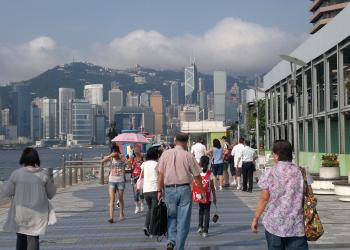
新闻
HK Set for Worst of It Amid Climate Change (只提供英文版本)
This month, we experienced the hottest day of the year as temperatures in Hong Kong reached 35.1 degrees Celsius.
Countries across western Europe also struggled in record-breaking temperatures recently, with France hit the worst at 45.9 degrees in June.
The grim situation appears to have been a repeat of last year's conditions.
Although there are ongoing indepth analyses and further studies to examine the causes of individual extreme temperature events, many experts believe that extreme heat waves would not be feasible without anthropogenic climate change, meaning human activities are the main culprit for global warming ravages.
Such an assumption has been proven by climate models - a complex computer simulation of physical processes and mathematical formulae used mainly to predict climate and understand how the climate system responds to elevated greenhouse gas emissions.
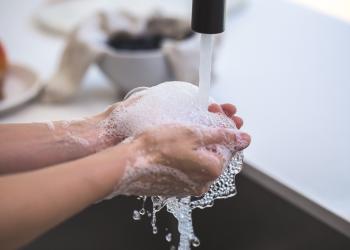
新闻
Germaphobia Doesn't Wash Healthwise (只提供英文版本)
A recent Consumer Council survey has found that only two out of eight tested anti-bacterial handwash products can live up to their claims of having 99.9 percent efficacy in killing germs, sparking worries amongst the public.
Advertisements often imply that bacteria in homes are harmful and must be eliminated by using any antibacterial or antimicrobial products available.
However, Boston University's School of Public Health suggests only about 5 percent of bacterial species are disease-causing, in other words pathogenic.
In fact, the pursuit of a germ-free environment is futile.
Some bacteria are just impossible to eliminate with chemicals in the cleansing agents, or at the concentrations level of the chemicals we are commonly using.
Even the so-called 99.9 percent efficacy must rely on perfect usage of the product.
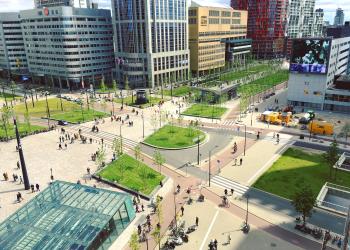
新闻
Let's Make A Start Toward Cleaner Society (只提供英文版本)
The recent Extinction Rebellion movement in the UK protested against climate breakdown, biodiversity loss and the risk of social and ecological collapse.
Protesters called for policies that can achieve a net zero carbon footprint by 2025, one of the 17 sustainable development goals agreed by world leaders at the United Nations in 2015.
Meeting these goals requires more than addressing climate change.
Sustainable development is a balance between the needs of the environment, society and economy in order to maintain a quality standard of life for both present and future generations.
Many countries, including the UK, have implemented goal-specific measures in a bid to achieve the 17 goals, with voluntary national reviews to see if the measures are effective.









